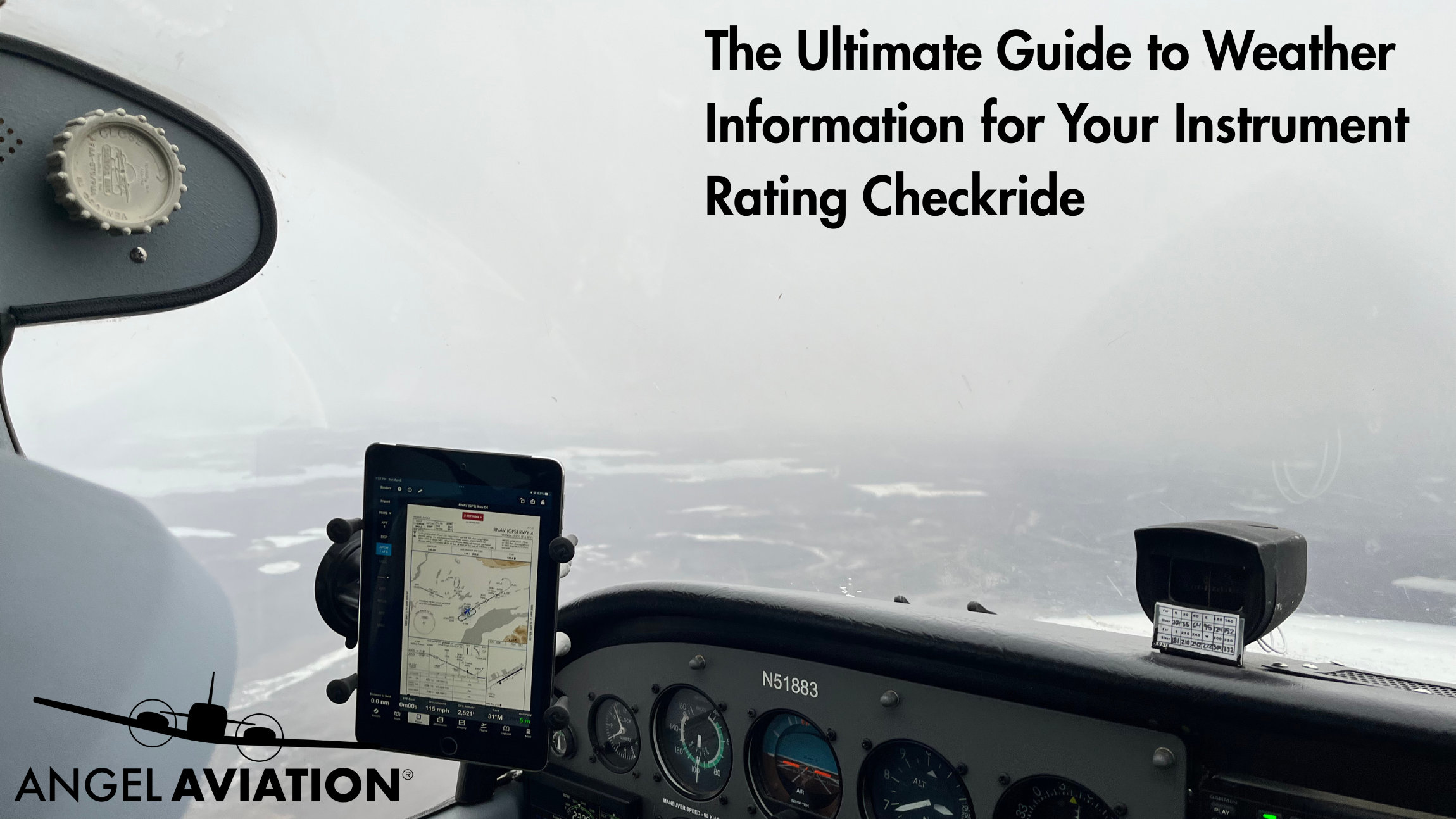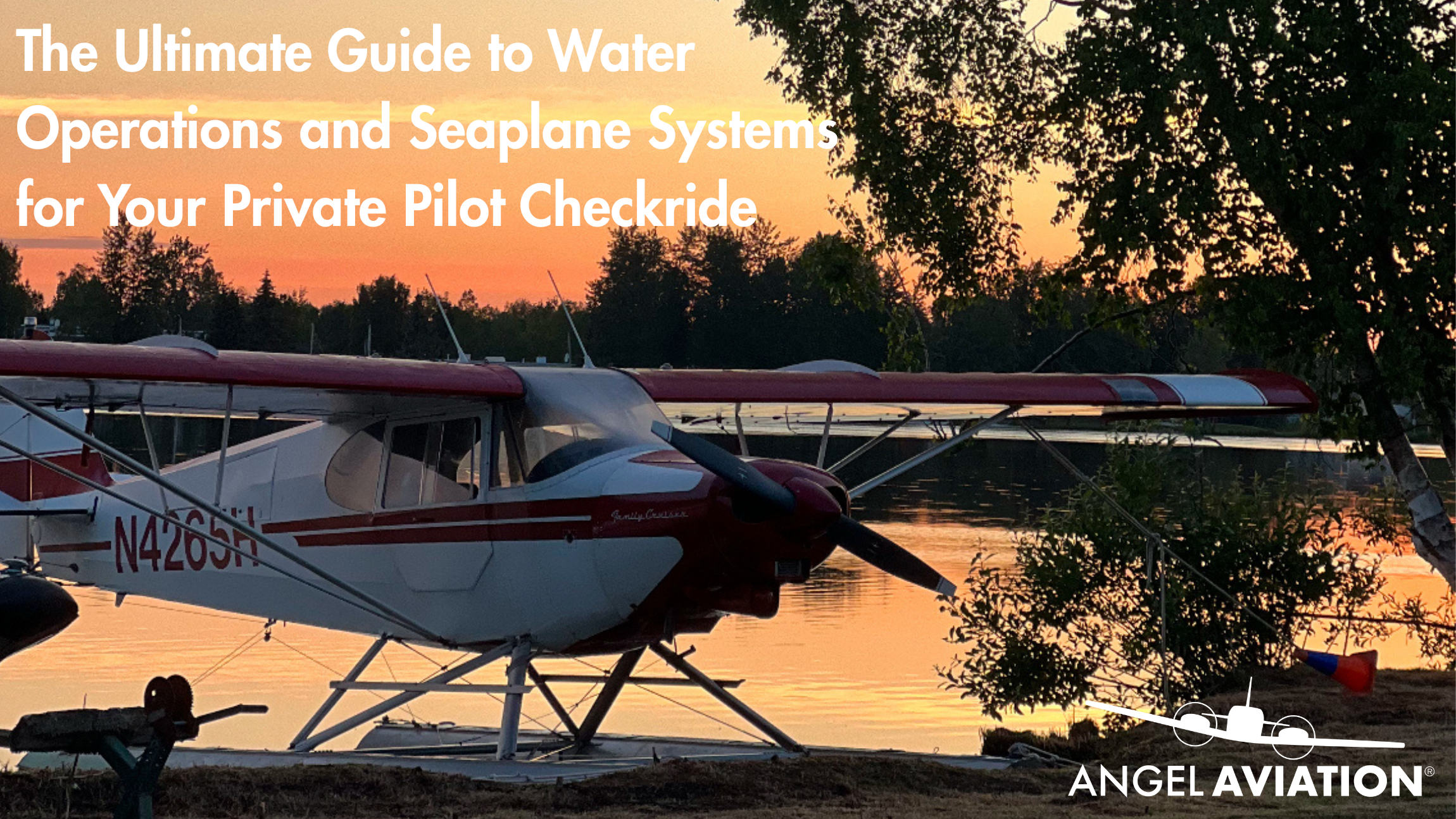At Angel Aviation, we believe that understanding the legal foundation of your rating is just as critical as holding altitude during an approach. Before your DPE asks you to brief an ILS or fly a partial-panel hold, they’ll want to verify: Are you legally qualified to take this test — and fly IFR afterward?
This guide will walk you through the Instrument Rating Pilot Qualifications section of the ACS, referencing key FARs, outlining what documents to bring, what knowledge to master, and how to show your examiner that you’re ready for IFR.
🎯 What the Examiner Is Looking For
Under Instrument Rating ACS Area I: Pilot Qualifications, your DPE is assessing your ability to:
- Demonstrate eligibility under 14 CFR Part 61 Subpart B
- Present required documentation
- Explain privileges and limitations of instrument-rated pilots
- Understand recent experience and instrument currency rules
- Comply with recordkeeping and logbook endorsements
Let’s break it down into what you need to know, prove, and bring.
✅ Eligibility Requirements
📚 Ref: 14 CFR §61.65
To be eligible for the instrument rating, you must:
- Hold at least a current Private Pilot Certificate
- Hold a current medical certificate (at least third-class)
- Be able to read, write, speak, and understand English
- Pass the FAA instrument knowledge test
- Receive and log ground and flight training on IFR areas of operation
- Receive a logbook endorsement for the practical test
- Pass the instrument practical test (checkride)
💡 Angel Pro Tip: Double-check that your knowledge test results are still valid (they expire after 24 calendar months).
🧰 Flight Experience Requirements
📚 Ref: 14 CFR §61.65(d)
Under Part 61, you must log at least:
- 50 hours of cross-country PIC time, of which at least 10 hours must be in airplanes
- 40 hours of actual or simulated instrument time, including:
- 15 hours with a CFII
- 3 hours of training within 2 calendar months of your checkride
- One cross-country IFR flight of at least 250 NM, including:
- An instrument approach at each airport
- Three different kinds of approaches using navigation systems (e.g., ILS, GPS, VOR)
Be sure your logbook entries clearly document instrument and cross-country time.
🗂 Required Documents for Checkride Day
Here’s what to bring (and what your DPE will verify):
- ✅ Government-issued photo ID (§61.3)
- ✅ Pilot certificate (Private or Commercial)
- ✅ Current FAA medical certificate (§61.23)
- ✅ Endorsed logbook with documented training and experience
- ✅ Instrument Knowledge Test Report with passing score (§61.35(a)(1))
- ✅ IACRA Application (FAA Form 8710-1) signed by your CFII
- ✅ Any previous Notices of Disapproval (§61.49), if applicable
📁 Angel Tip: Use a checkride folder or binder. Label each item for quick access during the oral.
🎓 Required Endorsements
📚 Ref: 14 CFR §61.65(g)
Your CFII must sign off on:
- ✅ Completion of required training for the instrument rating
- ✅ Review of areas required for the practical test
- ✅ Endorsement for the instrument knowledge test (if applicable)
- ✅ Endorsement for the checkride (§61.39(a)(6) and (7))
⚖️ Privileges and Limitations of an Instrument Rating
📚 Ref: 14 CFR §61.65, §61.57, §91.103, §91.167–91.185
Privileges:
- Act as PIC under IFR or in IMC
- File and fly IFR flight plans
- Operate in Class A airspace
- Conduct instrument approaches, departures, and en route operations
Limitations:
- You must be current under §61.57(c):
- In the preceding 6 calendar months, log 6 instrument approaches, holding, and tracking courses
- Otherwise, complete an Instrument Proficiency Check (IPC)
📅 Staying Instrument Current After the Checkride
📚 Ref: 14 CFR §61.57(c)
To act as PIC under IFR, you must meet instrument currency requirements:
- 6 approaches + holding + tracking within the past 6 calendar months
- If not current, you have a 6-month grace period to regain currency with a safety pilot
- After 12 months, an Instrument Proficiency Check is required with a CFII
⚠️ Scenarios You’ll Be Asked
Your examiner may ask:
- “When does your instrument currency expire?”
- “How do you log simulated instrument time?”
- “You haven’t flown IFR in 8 months — can you still file and fly today?”
- “What are your personal minimums for launching into marginal weather?”
🧭 Bonus: Understanding FAR/AIM References
At Angel Aviation, we train you to know the rule and where it lives:
- §61.65 – Instrument rating requirements
- §61.57 – Instrument currency
- §91.167 – IFR fuel requirements
- §91.183–185 – IFR communications and procedures
- §91.103 – Preflight action
🧾 Final Thoughts from Angel Aviation
The Instrument Rating is more than just a skill — it’s a privilege rooted in regulation, training, and personal responsibility. By mastering your qualifications and understanding the legal structure around IFR flying, you’ll walk into your checkride confident, competent, and ready to fly in the system.






Leave A Comment